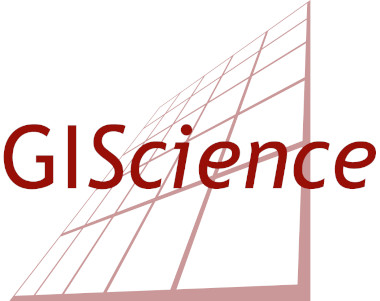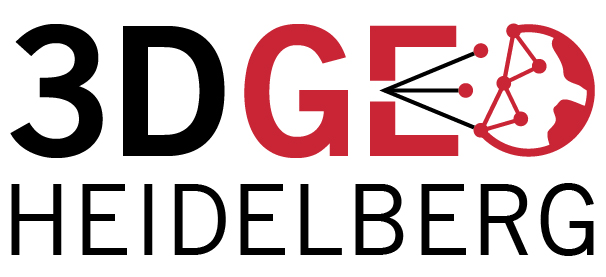IWH Symposium:
Geospatial Analysis of Disasters
Measuring Welfare Impacts of Emergency Relief
today & tomorrow: July 18-19, 2016 at Heidelberg University, Germany
(by invitation only)
Natural disasters and man-made catastrophes pose a serious threat to the stability and prosperity of countries and the well-being and lives of many individuals worldwide. Methodological advances and better availability of geospatial data are revolutionizing research on economic development after disasters and the allocation and effects of disaster relief and other forms of humanitarian aid. In order to spur this research agenda, we invite outstanding researchers to discuss how to use geospatial methods for measuring economic losses and recovery and other welfare indicators after disasters. Specifically, participants will work together to discuss and identify reliable, standard outcome measures of the welfare impacts of disasters at low levels of spatial and temporal aggregation.
This interdisciplinary symposium will be hosted by the Research Center of Distributional Conflict and Globalization in collaboration with the GIScience Group at Heidelberg University. Generous funding by AidData, the U.S. Global Development Lab powered by USAID and the German Research Foundation (DFG) is gratefully acknowledged. The symposium brings together researchers from economics, geography, computer science, political science, sociology, and other relevant disciplines. The goal of the symposium is to stimulate and advance the debate about reliable geospatial measures of the welfare impacts of emergency relief and to foster research collaborations.
Participants are invited to
- Present a discussion input about reliable geospatial measures of welfare impacts of natural and man-made disasters and/or emergency reliefand/or
- Present a new or recent paper in one of the following areas using geodata:
- Allocation of disaster relief and other forms of humanitarian assistance
- Economic effects of natural disasters and man-made catastrophes
- Spatial analysis of donor coordination in humanitarian assistance
- Disaster risk assessment and mapping
- Economic recovery and reconstruction after catastrophes
- Political-economy analyses of conflict and disaster environments
- South-South Cooperation and private actors in humanitarian assistance
- Remote-sensing and spatio-temporal monitoring of disaster areas and relief efforts
- Innovative geospatial data and volunteered geographic information (such as crowdsourcing, collaborative maps, social media) for analyzing disaster impact and emergency relief
- Methodological advances in the geoanalysis of disaster response and humanitarian aid
Program ![]()
Papers:
- Alan Fuchs Tarlovsky. Voter Response to Natural Disaster Aid: Quasi-Experimental Evidence from Drought Relief Payments in Mexico (with Lourdes Rodriguez-Chamussy).

- Amir Jina. The Causal Effect of Environmental Catastrophe on Long-Run Economic Growth: Evidence From 6,700 Cyclones (with S. M. Hsiang).

- Claire Zanuso. Build Back Better: The Long-lasting Impact of the 2010 Earthquake in Haiti (with Camille Saint-Macary).

- Eric Strobl. The Inflationary Costs of Extreme Weather in Developing Countries (with Andreas Heinen and Jeetendra Khadan).

- Ilan Noy. The Measurement of Disaster Risk: An Example from Tropical Cyclones in the Philippines (with Rio Yonson and JC Gaillard).

- Joshua Busby (University of Texas-Austin). In Harm’s Way: Climate Security Vulnerability in Asia (with Todd Smith, Nisha Krishnan and Charles Wight). Appendix Tables, Appendix Figures

- Martin C. Steinwand. Climate Change and Political Survival: Effects of Meteorological Drought and Precipitation Flooding (with Oleg Smirnov, Tingyin Xiao and Minghua Zhang).

- Pierre-Guillaume Méon. Does a Disaster in the Backyard Affect Donations for a Faraway Cause? Evidence from a Natural Experiment in Flanders (Belgium) (with Philip Verwimp).

- Robert Elliott and Eric Strobl. Natural Disasters and Plant Survival: The Impact of the Kobe Earthquake (with Matthew A. Cole and Toshihiro Okubo).

- Timo Goeschl. Natural Hazards and Disaster Preparedness: Crowding Effects of Public Insurance on Private Self-insurance (with Shunsuke Managi).

Location: The symposium will take place at Heidelberg University’s International Academic Forum (IWH) on July 18-19, 2016 (IWH Symposium). Heidelberg University is one of Germany’s Universities of Excellence and is the country’s oldest university. The city of Heidelberg is considered one of the most beautiful in Germany and is located only a short train ride from Frankfurt Airport.
We are looking forward to welcoming you at Heidelberg University
Research Center for Distributional Conflict and Globalization, Heidelberg University
Vera Z. Eichenauer and Sven Kunze
Chair of International and Development Politics, Heidelberg University
João Porto de Albuquerque and Hongchao Fan
GIScience Research Group, Heidelberg University


